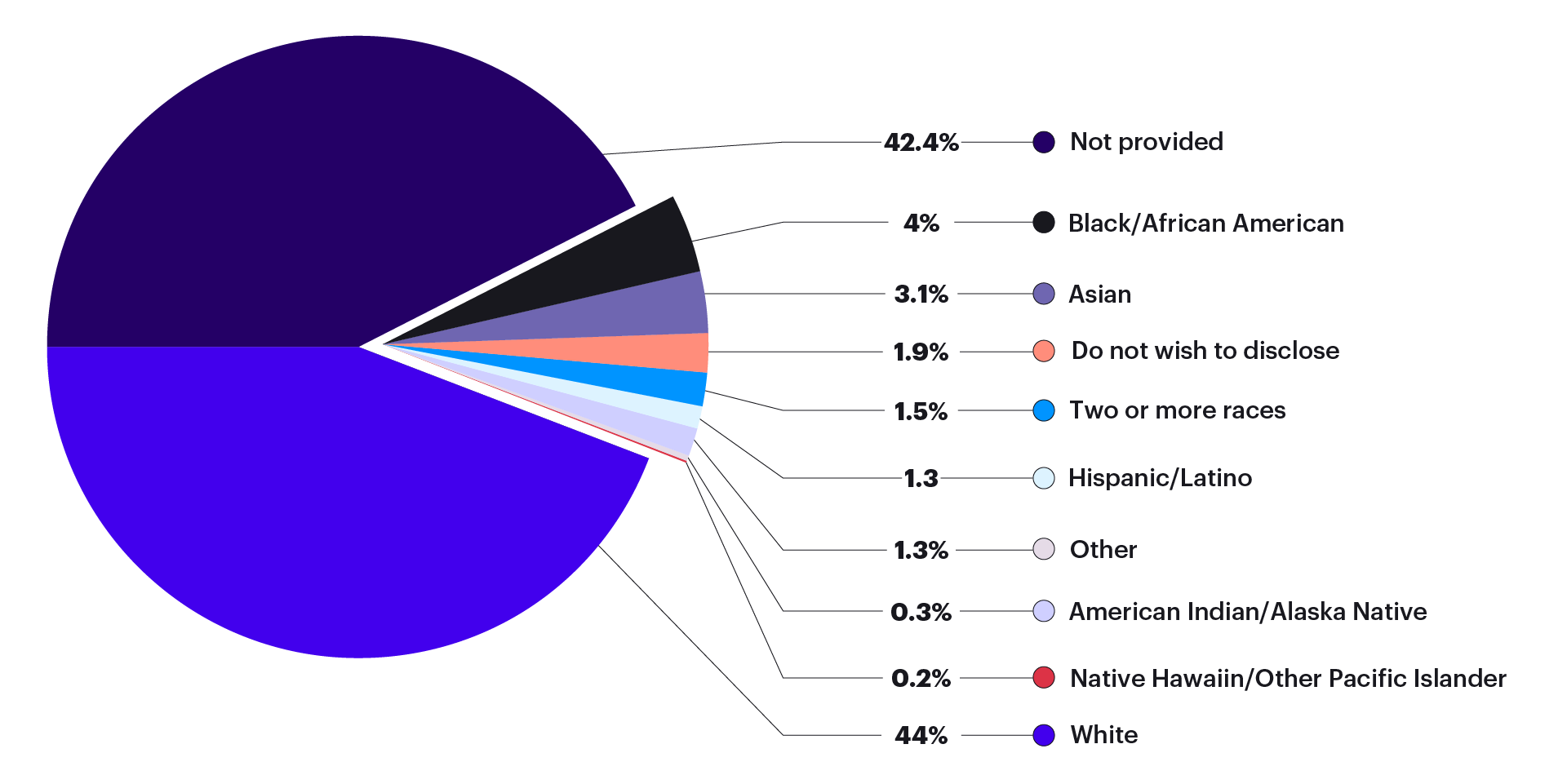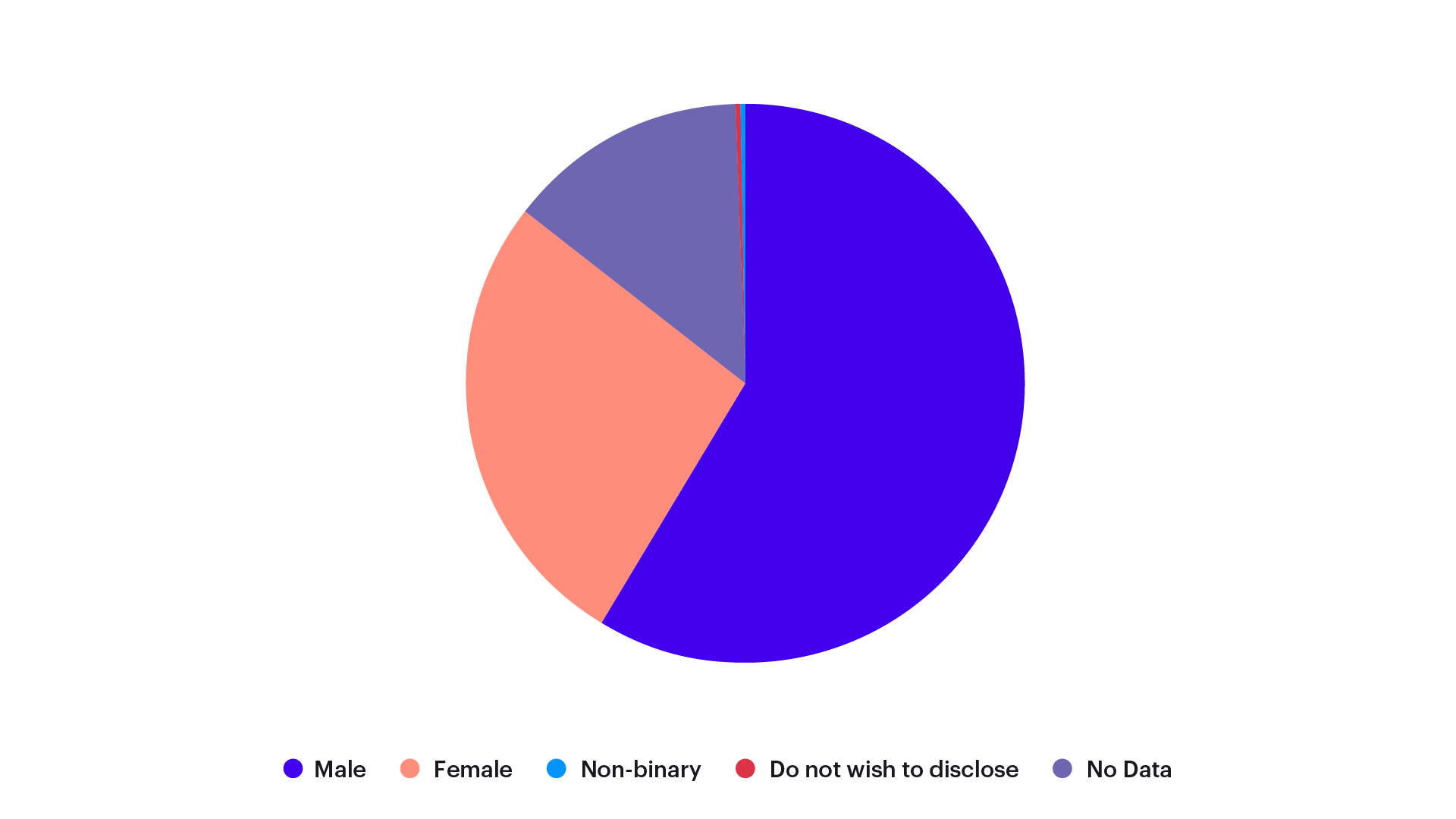Institutional Learning Outcomes
By completing a degree, designation, or certificate education program at The College, graduates will have achieved the following six Institutional Learning Outcomes (ILOs):
- Identify various techniques of problem-solving using multiple methods of discovery and critical thinking to meet client or stakeholder need
- Apply appropriate discipline-specific knowledge to increase expertise in the decision-making process or ongoing improvements
- Analyze applied financial knowledge and/or educational excellence through a focus on meaningful evaluation of data to make informed decisions to close the gap and eliminate shortcomings or impact on organizational performance for all stakeholders
- Support an environment of lifelong learning through reflection, insight, and inducement of formal and informal learning opportunities
- Propose compelling examples of how to apply the various ethical standards or legal practices in the best interests of all stakeholders
- Create effective written and verbal communication that is clear, concise, and coherent to effectively articulate the message, information, and ideas to a diverse audience across multiple platforms
2024 Institutional Learning Outcome Performance
Assessment measures have been mapped across each degree, designation, and certification education program to track performance across the ILOs.
Institutional Learning Outcomes Performance by School 2024
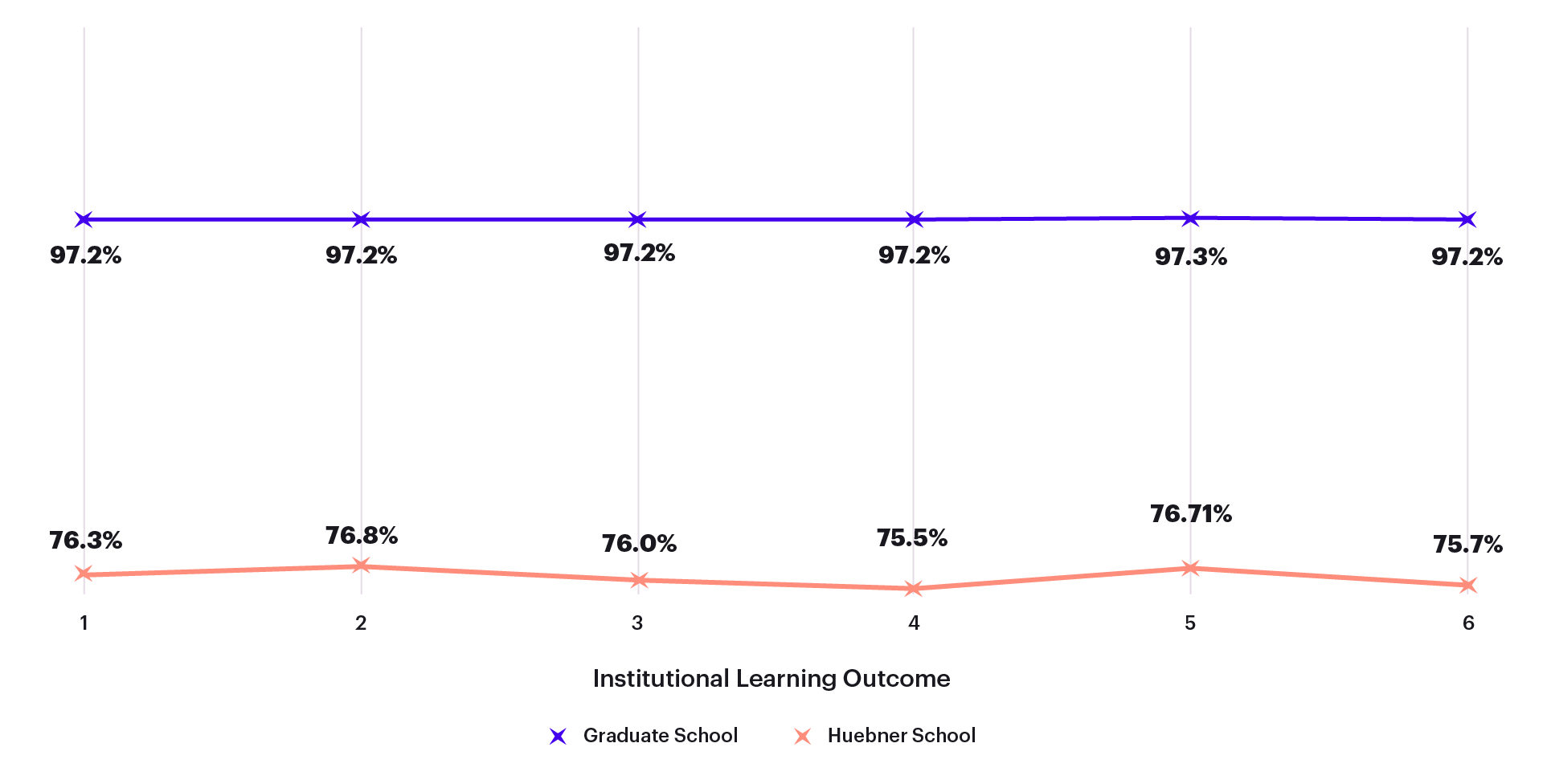
Overall Institutional Learning Outcomes Performance 2024
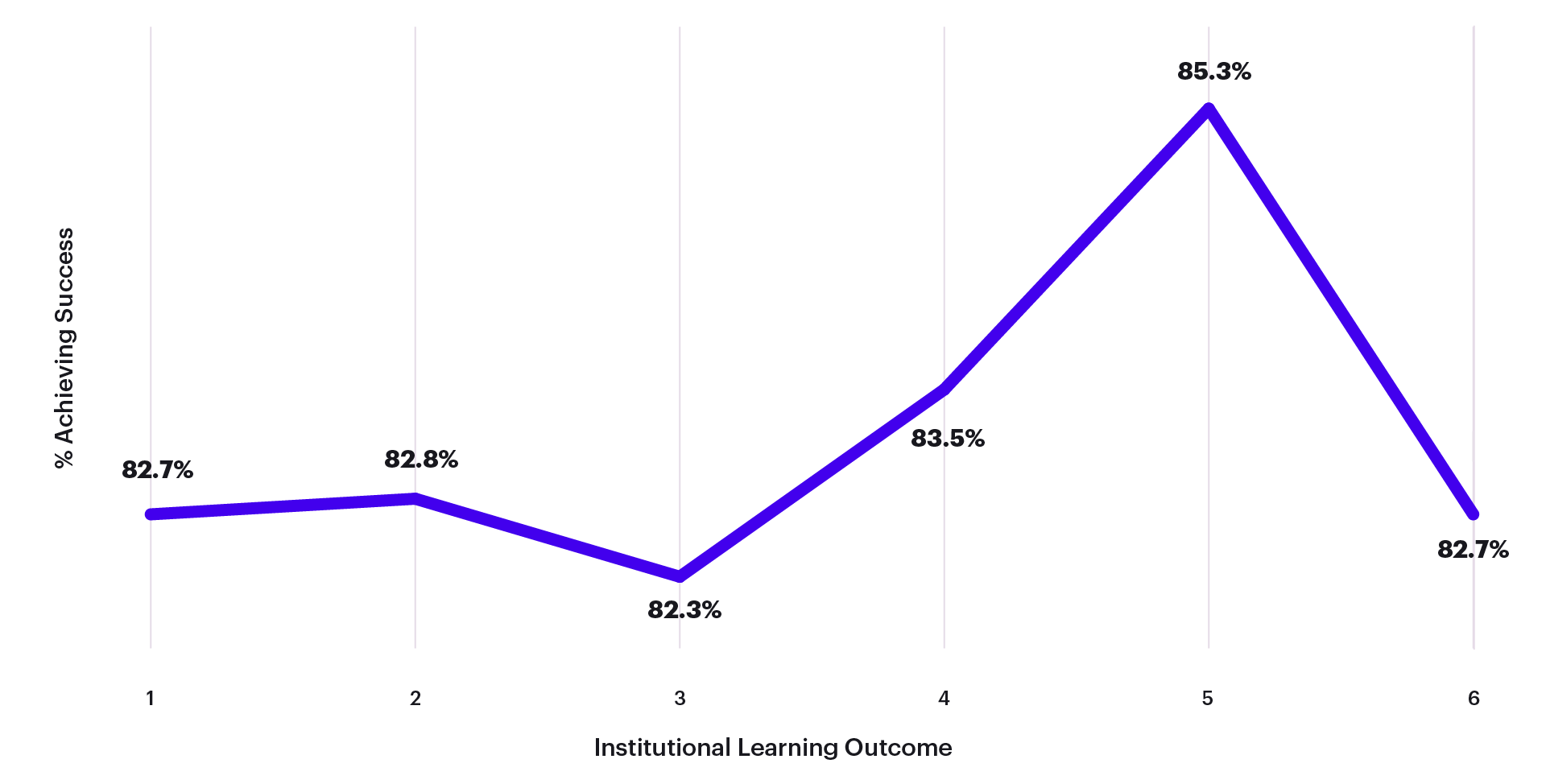
Program Completion
Completion rates are tracked across all degree, designation, and certification education programs annually and reported based on the year enrolled.
Completion Rates by School 2024
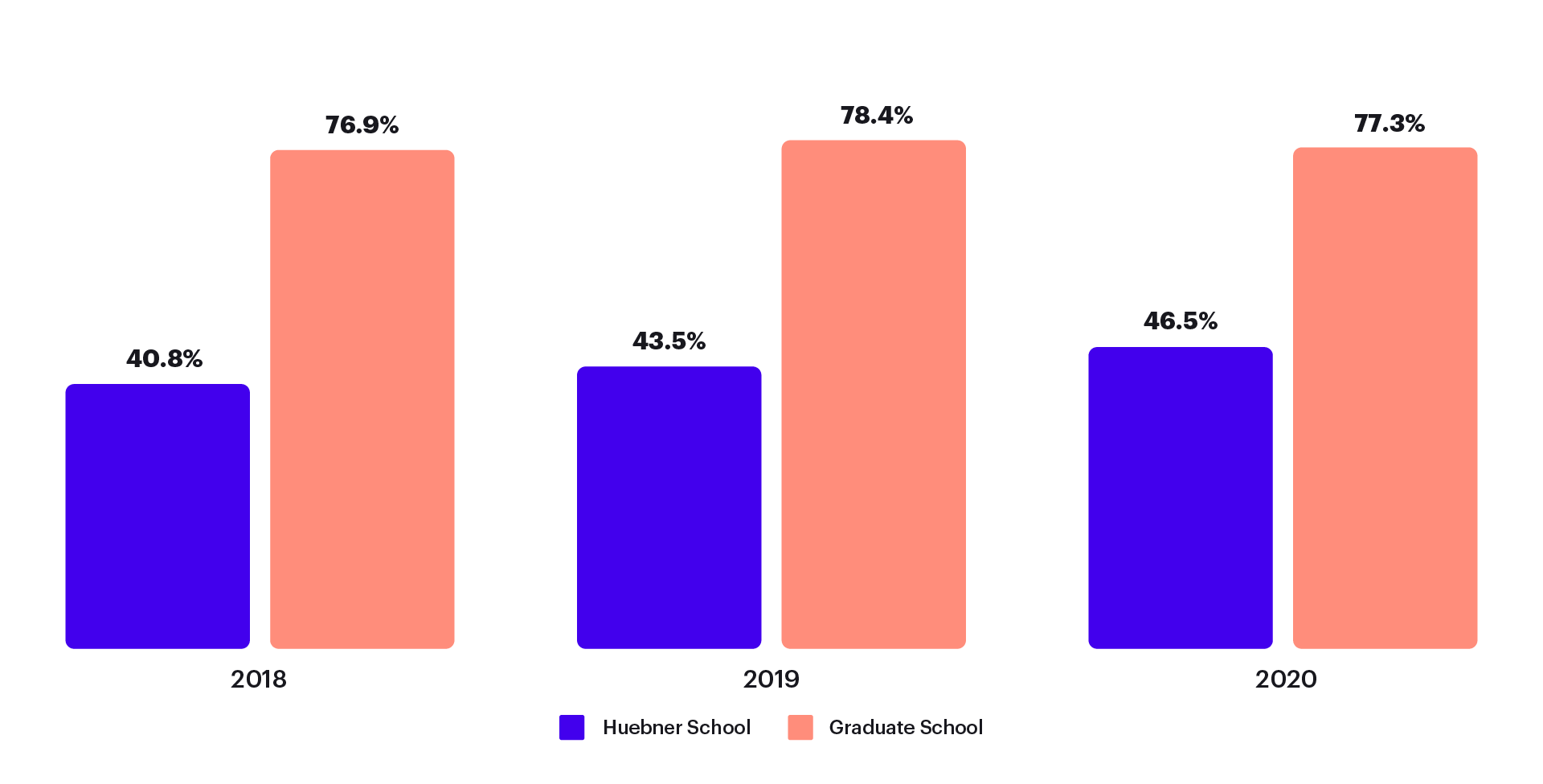
CFP® Exam Pass Rates
CFP® certification examination statistics are cumulative since March 2024 (the inception of the current version of the exam) and reported by the CFP Board.
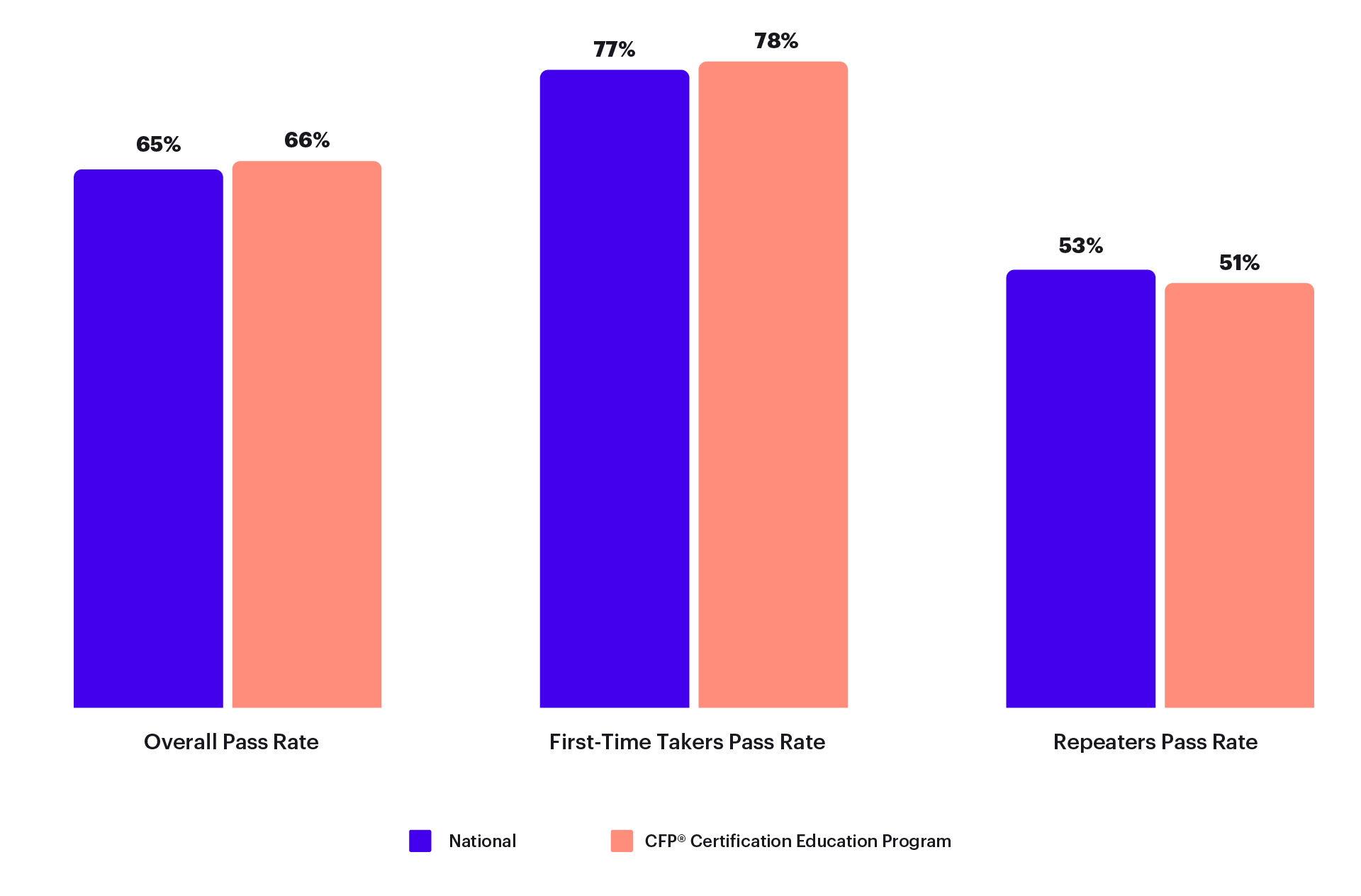
Program Learning Outcomes
Program learning outcomes (PLOs) are clear, concise statements that describe what knowledge, skills, or attitudes students will be able to demonstrate, represent, or produce upon successful completion of their program. Program learning outcomes can be found on each degree, designation, and certification education program page.
Undergraduate Programs: Students Achieving Success PLOs
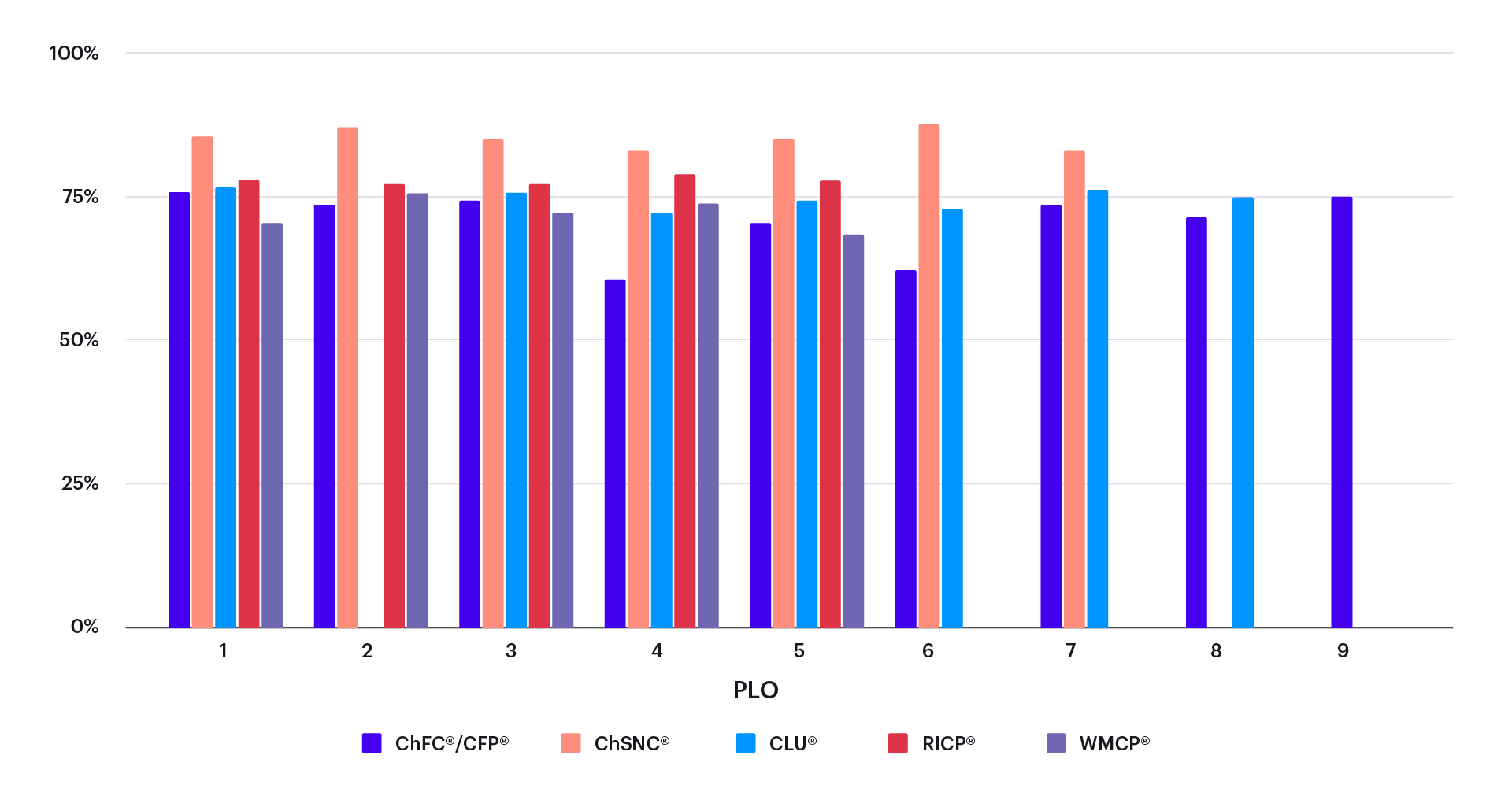
Graduate Programs: Students Achieving Success PLOs
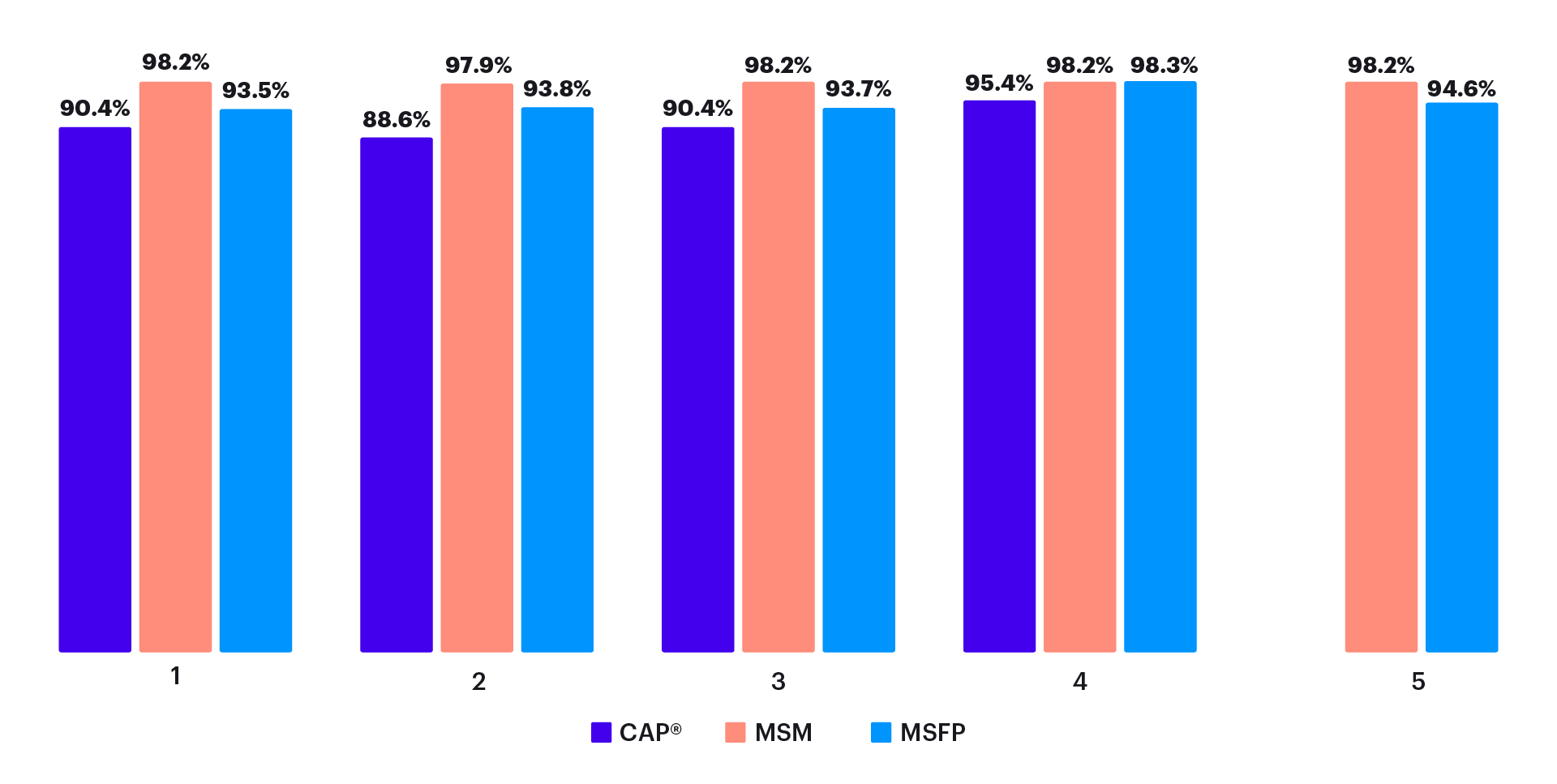
Student Demographics
Presented here is the composition of students attending The College.
Race/Ethnicity Composition
